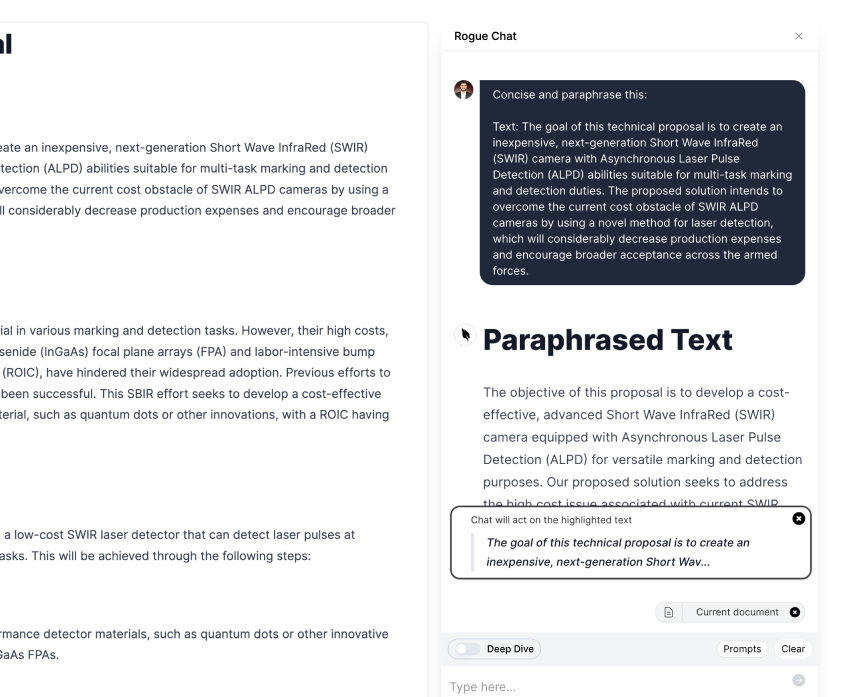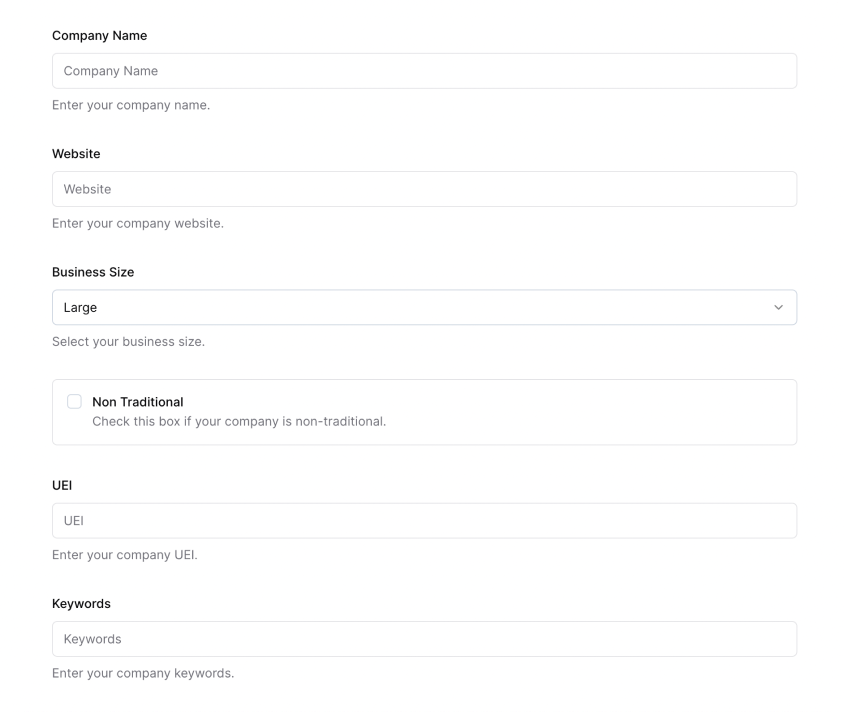
Understanding Regulations, Rules, and Compliance in Government Contracting for Small Business Owners
Every market has rules and govcon is no different
Table of contents
- Introduction
- Navigating the Intricacies of Crucial Regulations and Requirements
- Federal Acquisition Regulations (FAR)
- Agency Specific Regulations
- CFR Title 48 Chapter 99: Cost Accounting Standards
- NIST 800-171 Cybersecurity Compliance
- 52.204-25: Prohibition on Contracting for Certain Telecommunications and Video Surveillance Services or Equipment
- Consequences
- Final Points
As a small business owner, the prospect of bidding on government contracts can be both exciting and daunting. On the one hand, winning a government contract can provide a steady stream of revenue and open up new opportunities for growth. On the other hand, navigating the complex web of regulations and requirements that govern government contracting can be overwhelming. In this blog post, we will explore some of the key regulations and requirements that small businesses need to be aware of when bidding on and managing government contracts.
Introduction
The importance of understanding and adhering to government contracting regulations for small businesses cannot be understated. Failure to comply with these regulations can result in costly penalties, loss of contracts, and damage to your company’s reputation. There are numerous regulations and requirements that must be met in order to successfully bid on and manage government contracts. These include federal acquisition regulations, agency-specific regulations, cost accounting standards, cybersecurity requirements, and more. In the sections below, we will dive deeper into each of these areas.
Navigating the Intricacies of Crucial Regulations and Requirements
A crucial regulation that small businesses need to be familiar with is the Federal Acquisition Regulation (FAR). The FAR is the primary regulation governing government contracting. It provides guidance on how to conduct government acquisitions, including rules for bidding, awarding contracts, and managing them after they have been awarded.
Additionally, there are agency-specific regulations and requirements that differ from the FAR and must be adhered to when contracting with certain agencies. For example, the Defense Federal Acquisition Regulation Supplement (DFARS) governs all Department of Defense (DOD) acquisitions over $7 million. The Special Operations Federal Acquisition Regulations Supplement applies to all acquisitions made by the Special Operations Command (SOCOM), while the Department of Education Acquisition Regulation applies to all contracts for educational services or products over $10,000. The NASA Federal Acquisition Regulation Supplement is applicable to all acquisitions made by NASA.
Navigating these regulations can be challenging, but there are some tips that can help. First, stay up-to-date with changes to the regulations and requirements. These can change frequently, so it’s important to stay informed. Second, carefully read and understand the contracts you are bidding on. This will help you identify any specific regulations or requirements that apply to that contract. Finally, seek assistance from knowledgeable professionals whenever needed. This could include legal counsel, accountants, or other experts who can help you navigate the regulations and ensure compliance.
Federal Acquisition Regulations (FAR)
As mentioned earlier, the FAR is the primary regulation governing government contracting. It provides guidance on how to conduct government acquisitions and includes numerous clauses that must be included in every contract. Small businesses should pay special attention to parts in the FAR related to the termination of contracts, payment and performance bonds, and flow-down clauses for subcontractors.
FAR clauses must be included in every contract and must be understood by both parties in order to ensure compliance. Failure to comply with these clauses can result in costly penalties and damage to your company’s reputation.
Agency Specific Regulations
Small business owners who are interested in contracting with government agencies need to be well-versed in the various regulations and requirements that govern such contracts. While the Federal Acquisition Regulation (FAR) is a comprehensive set of rules and guidelines that apply across all federal agencies, there are also agency-specific regulations that must be followed.
For example, the Department of Defense (DOD) has its own set of regulations known as the Defense Federal Acquisition Regulations Supplement (DFARS). Any DOD acquisitions over $7 million must comply with DFARS requirements. Similarly, Special Operations Command (SOCOM) has its own supplement to FAR called Special Operations Federal Acquisition Regulations Supplement which applies to all acquisitions made by SOCOM. Other agencies have their specific acquisition regulations too. For instance, educational service providers or product contractors should adhere to The Department of Education Acquisition Regulation for any contracts exceeding $10,000. On the other hand, NASA's acquisition process follows a unique set of rules outlined in NASA Federal Acquisition Regulation Supplement.
Overall, Small business owners looking to contract with government entities need to understand these nuances and ensure they meet all applicable regulatory requirements before submitting their proposals or bids. Failure to do so could result in disqualification from consideration for valuable government contracts. It’s important for small businesses to be aware of these agency-specific regulations when bidding on contracts. Failure to comply with these regulations can result in loss of contracts and damage to your company’s reputation.
CFR Title 48 Chapter 99: Cost Accounting Standards
As a small business owner looking to secure government contracts, it is crucial that you understand the Cost Accounting Standards (CAS). The 19 standards are put in place to ensure accurate and consistent cost accounting practices are followed when bidding on contracts over $750,000. It's important to note that these standards apply not only to prime contractors but also subcontractors who may be working on projects subject to CAS.
The key cost accounting standards that small businesses should pay attention to include consistency in estimating, accumulating and reporting costs, allocation of costs among final cost objectives, and accounting for unallowable costs. Failure to comply with any of these could result in costly penalties or damage your company's reputation.
Consistency in estimating requires companies to use the same methods and assumptions when developing estimates for similar products or services. Accumulating and reporting costs means keeping detailed records of all expenses related to the project at hand. Allocating costs among final cost objectives refers specifically to identifying which specific contract each expense relates back too. Finally, unallowable costs must be identified as such so they can be excluded from any calculations made during pricing negotiations.
Small businesses operating under CAS regulations will need strong internal controls around their financial processes if they hope avoid noncompliance penalties. This includes having knowledgeable staff members trained in CAS compliance procedures and maintaining an up-to-date record-keeping system designed specifically for this purpose.
NIST 800-171 Cybersecurity Compliance
In today's digital age, cybersecurity has become a critical aspect of government contracting. With sensitive information being exchanged between contractors and the federal government, it is essential to safeguard against cyber threats that can potentially compromise national security.
To ensure that all contractors are following the best practices for cybersecurity, the National Institute of Standards and Technology (NIST) has developed Special Publication 800-171. This publication outlines a comprehensive set of guidelines that must be followed by all contractors who handle Controlled Unclassified Information (CUI). The NIST 800-171 compliance requirements cover various areas such as access control, risk assessment, incident response planning, data protection and encryption, network security monitoring and others. Small business owners who want to participate in any government contract must comply with these regulations to protect their clients' sensitive data. Non-compliance with NIST 800-171 can result in severe consequences like losing contracts or facing legal penalties. Therefore small businesses should make sure they have adequate systems in place before bidding on any project or signing a contract. Adhering to NIST 800-171 standards is not only essential for protecting CUI but also helps build trust with customers while ensuring continued success within the industry. It is vital for small business owners involved in government contracting to prioritize cybersecurity compliance measures as part of their overall strategy towards growth and sustainability.
In the world of government contracting, complying with regulations and rules is essential for small business owners who want to win contracts. One such regulation that businesses must be aware of is NIST 800-171 compliance. This cybersecurity compliance standard was established by the National Institute of Standards and Technology (NIST) to protect sensitive information known as Controlled Unclassified Information (CUI). To attain NIST 800-171 compliance, small businesses need to ensure that their systems containing or processing CUI have access controls in place. These access controls should limit unauthorized personnel from accessing the data while also enabling authorized users to carry out their work effectively. Additionally, companies must implement system and information integrity protections that prevent unintentional or malicious changes to CUI. Finally, incident response plans are a crucial aspect of attaining NIST 800-171 compliance. Small businesses should develop effective strategies for responding quickly and efficiently if they experience a security breach or other cyber incidents involving CUI.
52.204-25: Prohibition on Contracting for Certain Telecommunications and Video Surveillance Services or Equipment
As a small business owner looking to secure government contracts, understanding regulations and compliance is crucial. One such regulation that requires attention is Section 52.204-25 of the Federal Acquisition Regulation (FAR), which prohibits contracting with certain Chinese companies for telecommunications or video surveillance services or equipment. The prohibited companies include Huawei Technologies Company, ZTE Corporation, Hytera Communications Corporation, Hangzhou Hikvision Digital Technology Company, and Dahua Technology Company. The rationale behind this prohibition is due to concerns over national security risks associated with these companies' ties to the Chinese government. It's important to note that this prohibition applies not only to contracts directly related to these services or equipment but also any contract where they are included in some capacity. Therefore, it's critical for small business owners involved in government contracting to carefully review their supply chains and ensure compliance with all applicable regulations. By staying informed of regulations like Section 52.204-25 and taking steps towards compliance, small business owners can increase their chances of securing lucrative government contracts while mitigating potential legal issues down the road. Small businesses must ensure they comply with this prohibition by carefully reading contracts and avoiding any prohibited services or equipment.
Consequences
The consequences of not complying with regulations in government contracting can be quite severe, as they are designed to ensure fair procurement procedures, protect public funds, and maintain the integrity of government operations. Non-compliance can lead to various disciplinary actions such as fines, penalties, lawsuits, and even criminal prosecution. One notable consequence is debarment, which means that the contractor will be excluded from participating in any government contracts for a specified period. This can severely impact the financial stability and reputation of the contractor, making it difficult to secure future business opportunities. Another significant consequence is termination for cause, which occurs when a contractor is found to have committed a material breach of contract. This can lead to the termination of the existing contract, compensation for damages suffered by the government, and potentially, a negative impact on the contractor's ability to secure future government contracts. Overall, non-compliance with government contracting regulations can have long-lasting and damaging effects on a contractor's business and reputation, emphasizing the importance of adhering to these rules and regulations.
Final Points
To summarize, understanding and adhering to government contracting regulations is crucial for small businesses. Staying informed about changes to the regulations, seeking help from knowledgeable professionals when needed, and carefully reading contracts can help small businesses ensure compliance. Failure to comply with these regulations can result in costly penalties, loss of contracts, and damage to your company’s reputation. By staying informed and taking steps to ensure compliance, small businesses can successfully navigate the intricacies of government contracting and take advantage of the numerous opportunities it provides for growth and success.
Sign up for Rogue today!
Get started with Rogue and experience the best proposal writing tool in the industry.



